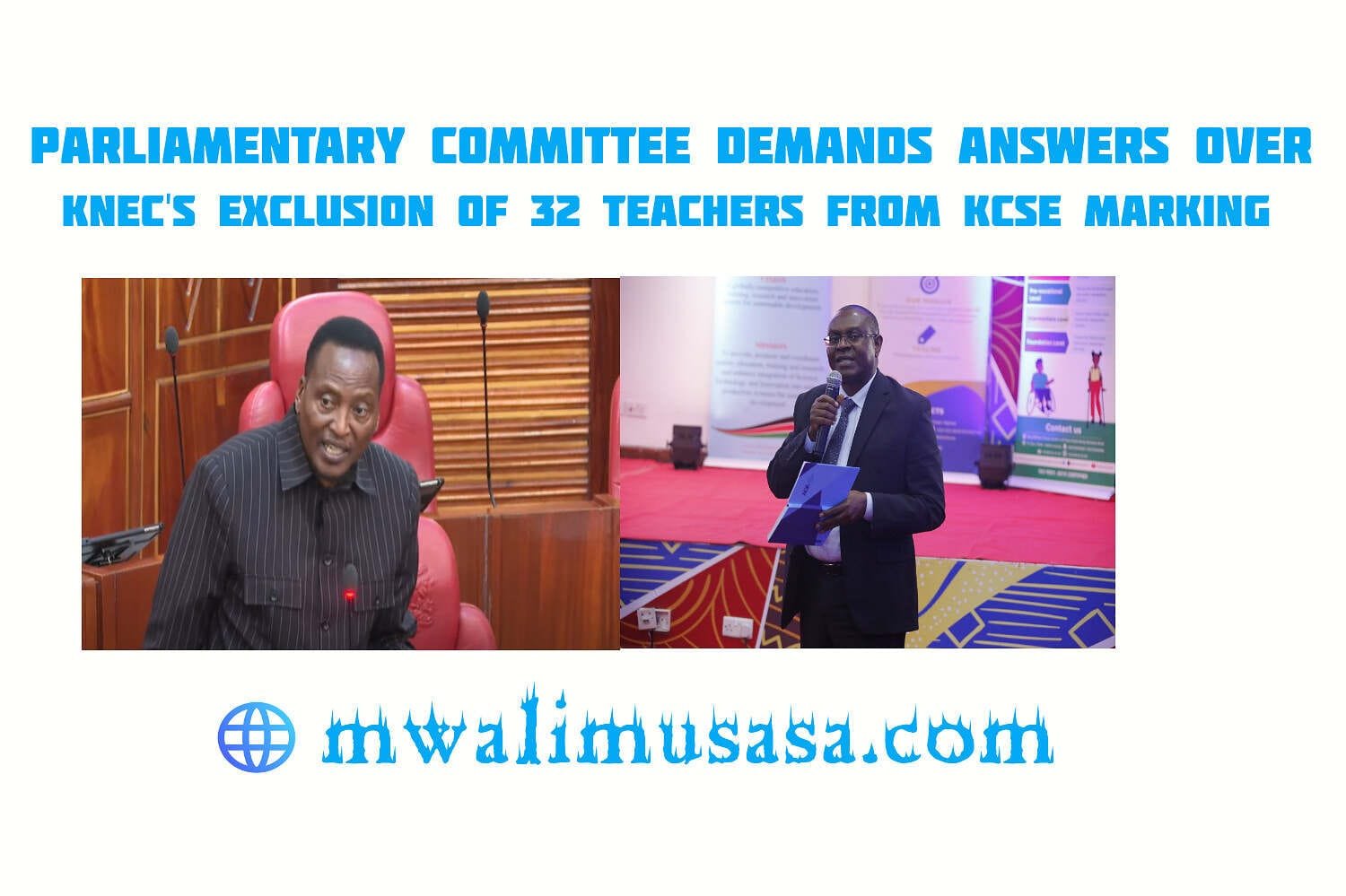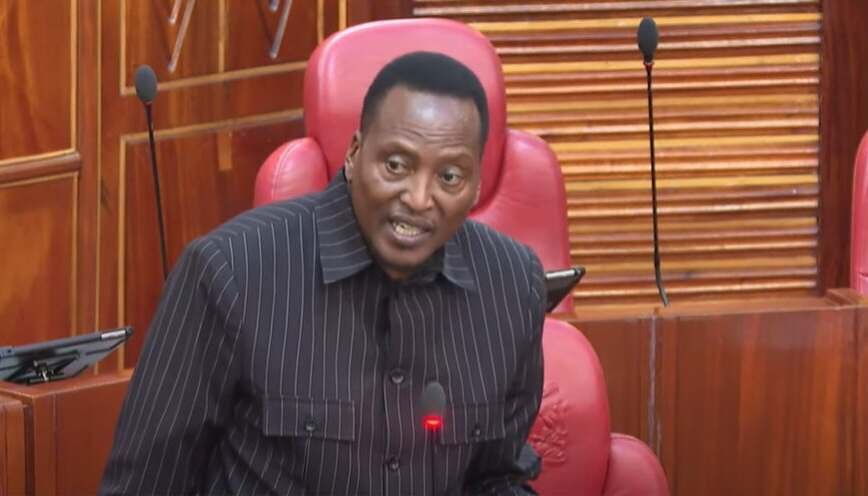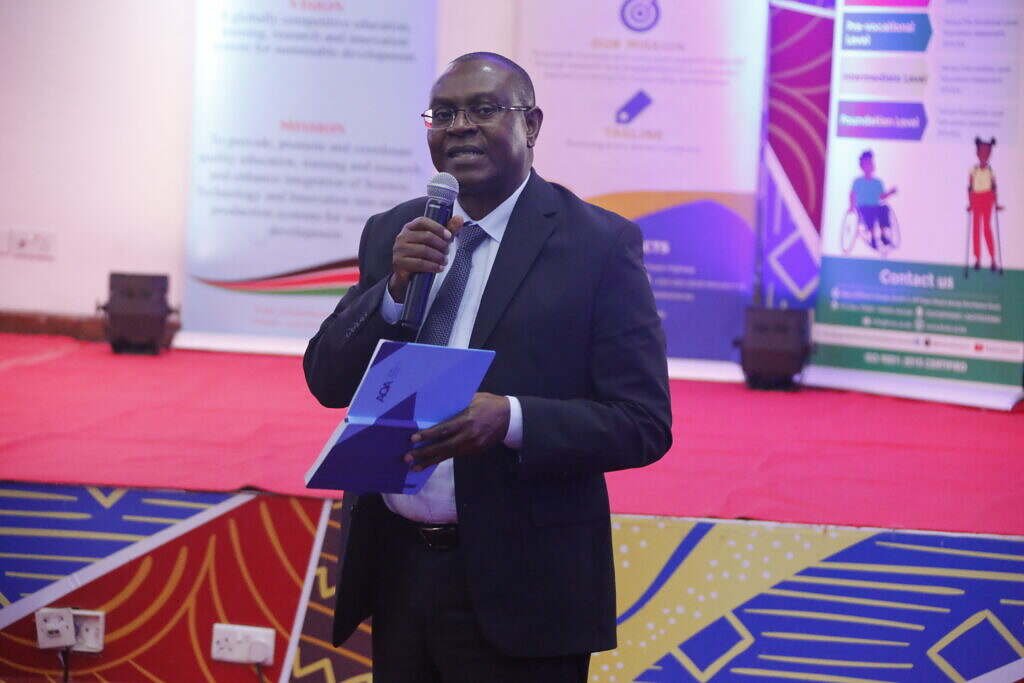Parliamentary Committee Demands Answers Over KNEC’s Exclusion of 32 Teachers from KCSE Marking


Sen. Richard Onyonka (Kisii) PHOTO: senate of Kenya (X)
The Kenya National Examinations Council (KNEC) is under scrutiny after a Parliamentary Education Committee questioned the alleged exclusion of 32 teachers from marking the 2023 Kenya Certificate of Secondary Education (KCSE) exams. The matter, raised by Senator Richard Onyonka, has sparked concerns about fairness, transparency, and due process in the national examinations system.
During a session on February 20, 2025, Senator Onyonka demanded an explanation for the alleged decision to bar the teachers, most of whom are from Poroko Friends School in Narok County. The senator described the move as possibly victimizing the affected teachers and called for urgent intervention from the Ministry of Education.
Why Were the 32 Teachers Barred?

The exclusion of these teachers remains controversial, as there has been no clear communication from KNEC on the criteria used. Senator Onyonka has questioned whether the decision was based on disciplinary reasons, political interference, or internal policy changes within KNEC.
The Parliamentary Committee is now demanding that KNEC:
✅ Clarifies why these teachers were excluded despite their qualifications and experience.
✅ Reveals whether there was due process in making the decision.
✅ Ensures fairness in teacher selection for national exam marking.
The exclusion has also raised wider concerns about teacher treatment in Kenya, with allegations that some educators face intimidation, threats, and transfers as a form of punishment.

Mass Teacher Transfers: A Related Concern
Senator Onyonka’s concerns extend beyond the KCSE examiners’ exclusion. He has also raised alarm over the mass transfer of teachers from Poroko Friends School and other institutions across the country.
“The committee should outline any measures the Ministry of Education is taking to ensure that teacher transfers are done in a manner that will not be adverse, discriminatory, punitive, or inhumane,” Onyonka stated.
His remarks come amid ongoing teacher transfers across Kenya, which have drawn criticism from teacher unions such as:
- Kenya Union of Post Primary Education Teachers (KUPPET)
- Kenya National Union of Teachers (KNUT)
- Kenya Secondary Schools Heads Association (KESSHA)
In Turkana County, for instance, more than 47 teachers were recently transferred without clear explanations or replacements, raising fears that education quality in affected areas may suffer.
What Are the Implications?
The exclusion of teachers from KCSE marking, coupled with forced transfers, could have serious consequences for Kenya’s education sector:
🔴 Compromised KCSE Marking Quality: Removing qualified teachers from the process may affect exam integrity and lead to delays or errors in results.
🔴 Low Teacher Morale: Unfair treatment of teachers can demotivate them, leading to poor performance in classrooms.
🔴 Transparency Issues: The lack of clear criteria for examiners’ selection raises concerns about fairness in KNEC’s operations.
🔴 Strained Teacher-Employer Relations: Continued disputes over transfers and exclusions increase tension between teachers, TSC, and the Ministry of Education.
Sign up with Hostinger using my referral link!Parliamentary Committee’s Next Steps
The Parliamentary Education Committee is now seeking urgent intervention from the Ministry of Education and KNEC to address the issue. Key demands include:
1️⃣ A detailed explanation from KNEC regarding why the 32 teachers were dropped.
2️⃣ A review of teacher transfers to ensure fairness and transparency.
3️⃣ Stronger policies to protect teachers from victimization and unfair treatment.
The matter is expected to be discussed further in Parliament, with education stakeholders and teacher unions closely watching the outcome.
Conclusion
The exclusion of 32 teachers from KCSE marking has ignited fresh debate over teacher rights, fairness in KNEC’s decision-making, and the broader issue of mass transfers. As the Parliamentary Education Committee pushes for answers, many are hoping for greater transparency and accountability to protect teachers and uphold the credibility of Kenya’s national examinations.
The Ministry of Education and KNEC now face mounting pressure to address these concerns before they escalate into a full-blown crisis.




